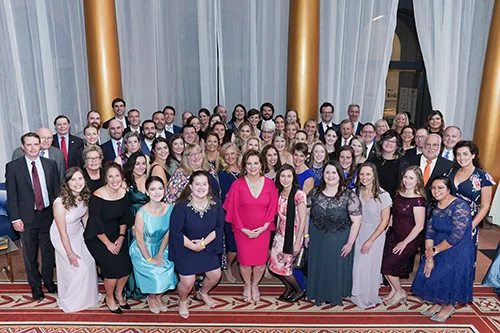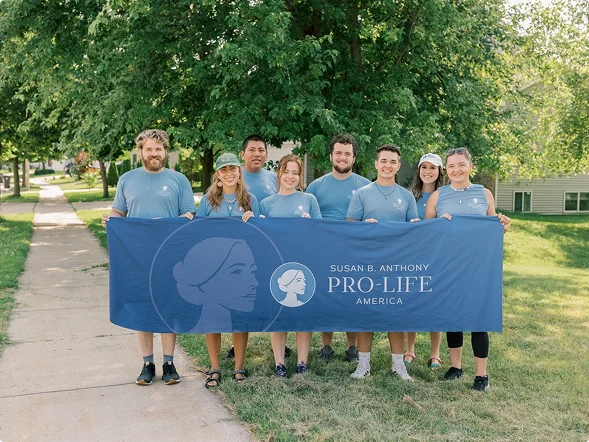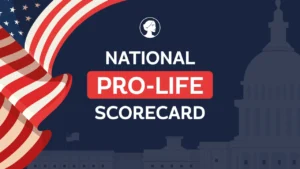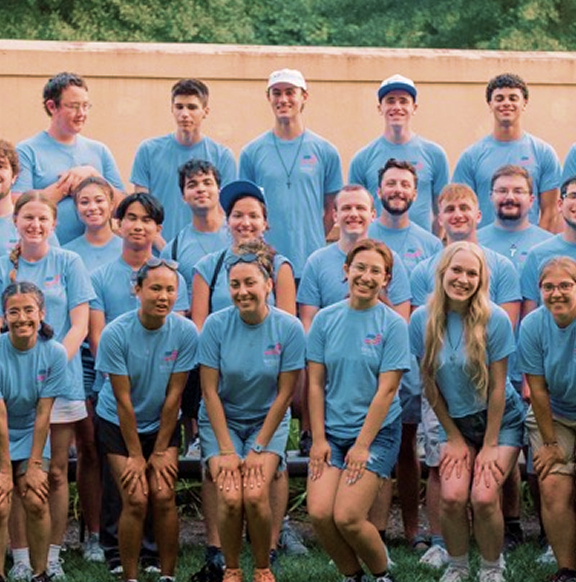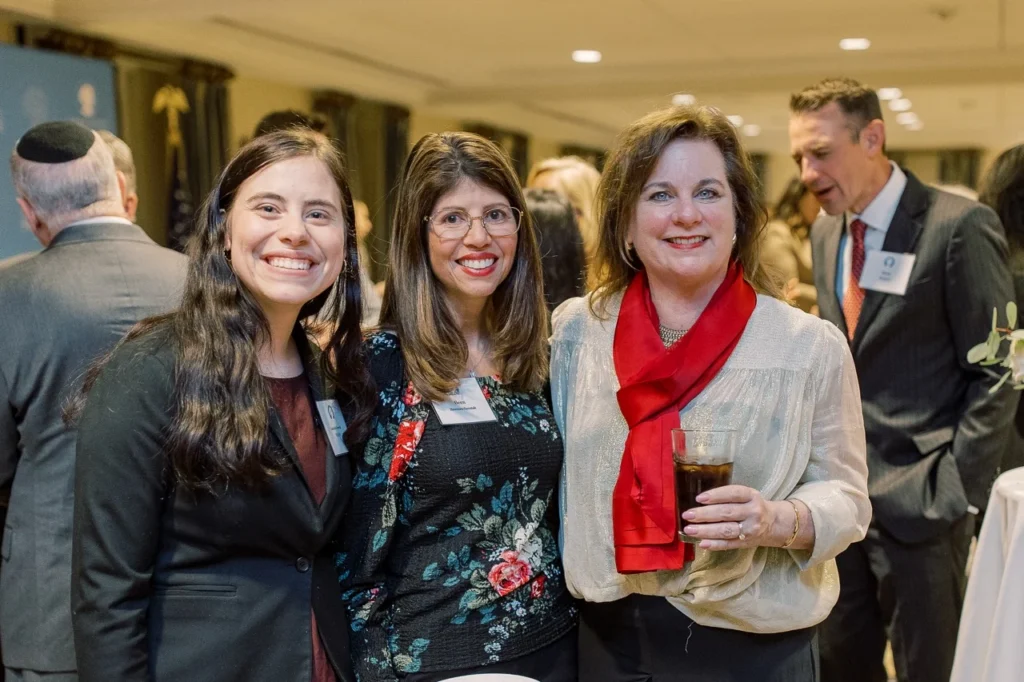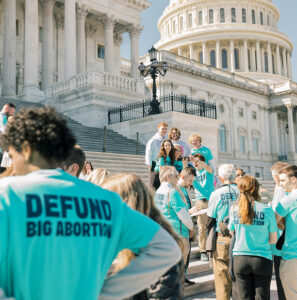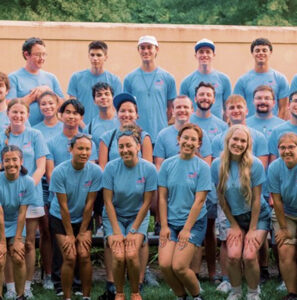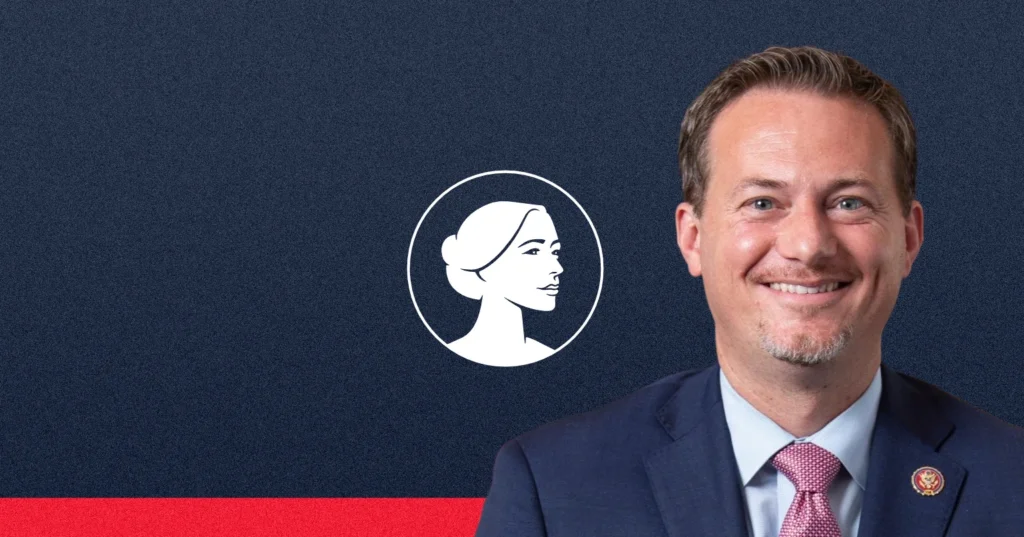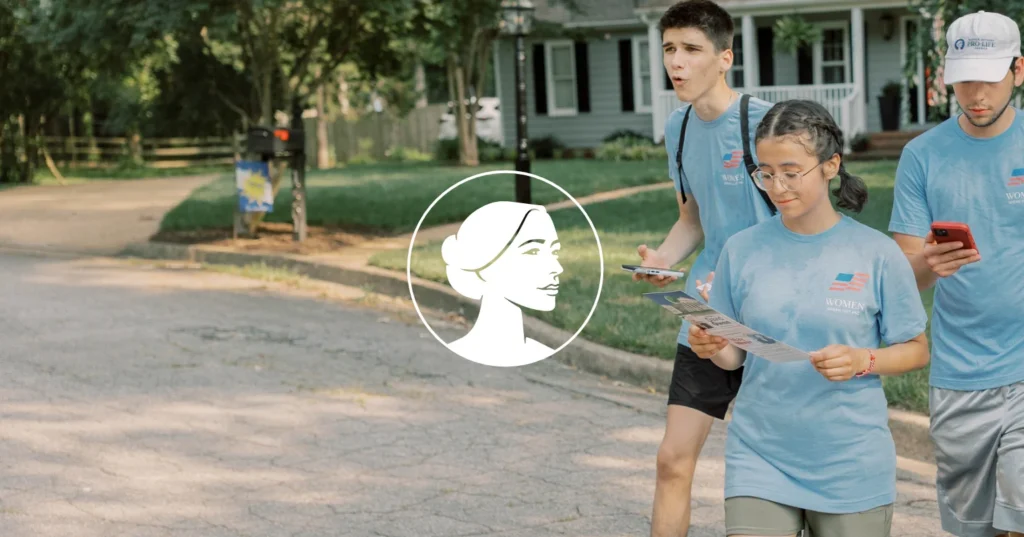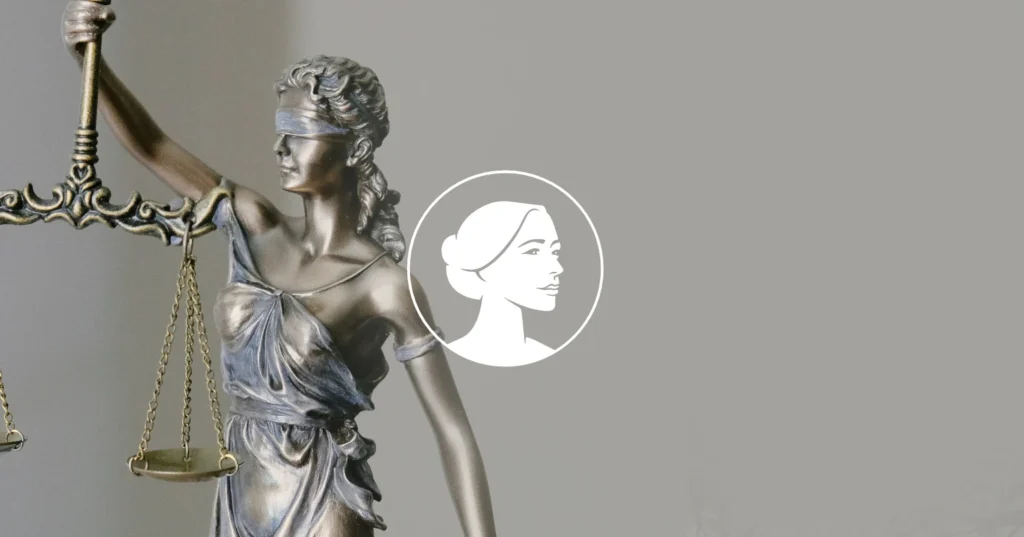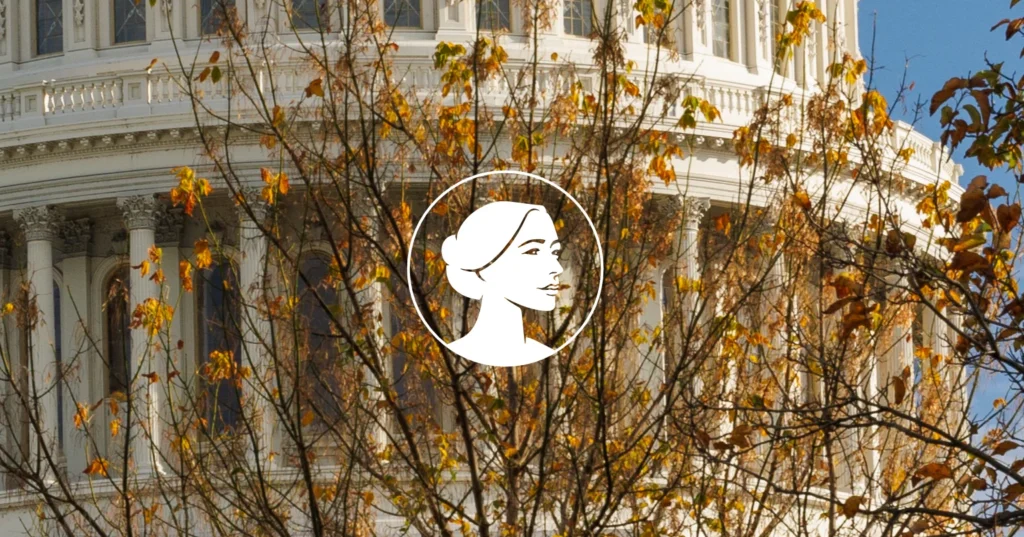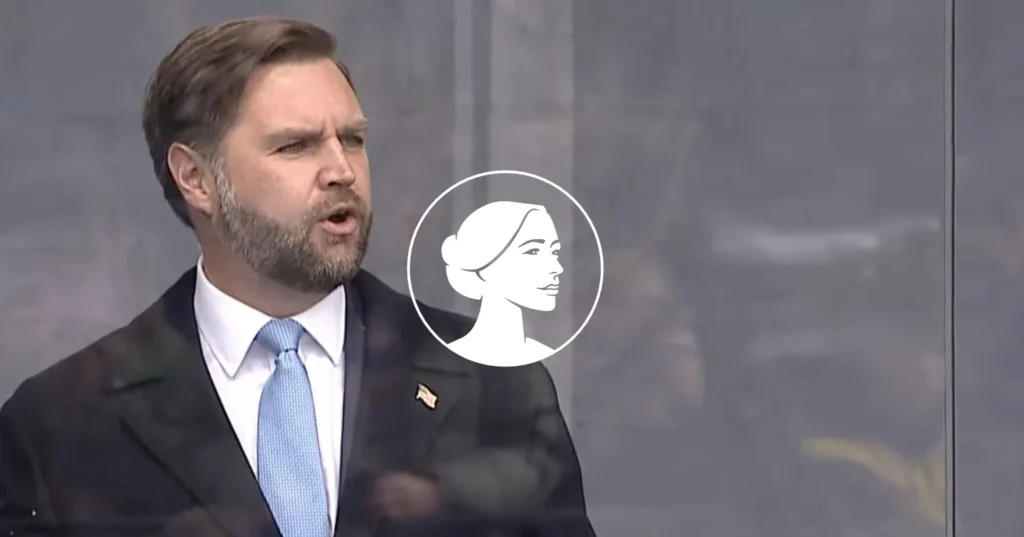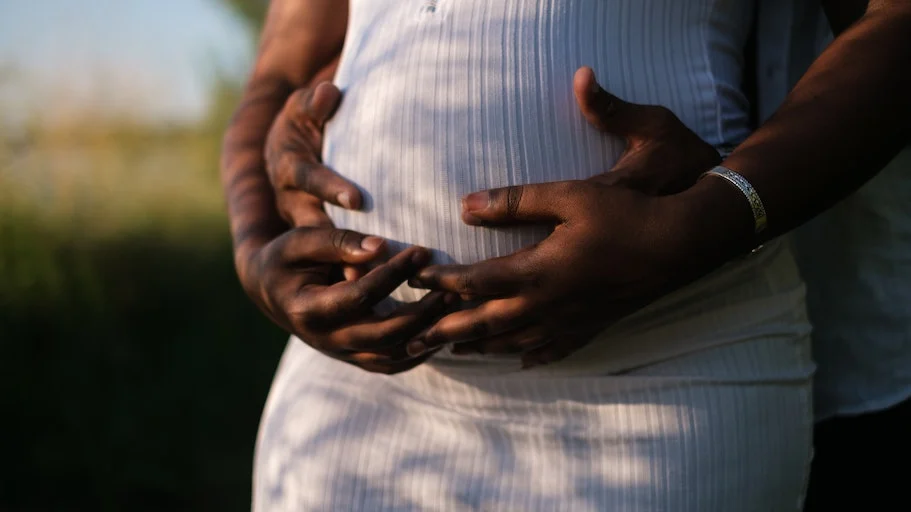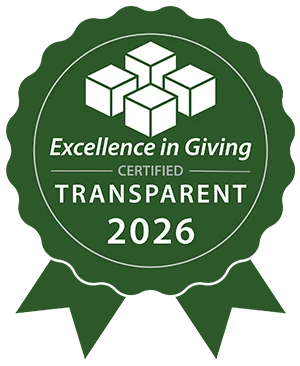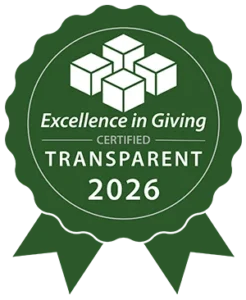Exposed: Abortion in America, Episode 24: Members of Congress on the Pro-Life American Dream
In this episode of Exposed: Abortion in America, host Eva Cooley interviews Rep. Burgess Owens (Utah) and Rep. Bob Onder (Missouri), two pro-life powerhouses. Owens slams Planned Parenthood’s eugenicist roots and its disproportionate harm to black communities, calling abortion a “death cult” that undermines American values like life and liberty. Onder, a physician, details his fight to defund Planned Parenthood in Missouri, exposing its dangerous practices—like aiding a minor’s abortion without parental consent and using unsanitary equipment. Both urge defunding the abortion giant and inspire hope for a life-affirming future through faith and legislation.
Episode 24 is on the following platforms:
Apple Podcasts:
https://podcasts.apple.com/us/podcast/exposed-abortion-in-america/id1769630555?i=1000706846869
Spotify:
https://open.spotify.com/episode/71gitqpIOnGYHEtSclzEkA?si=4e50a66c3b4f4db9
YouTube:
https://youtu.be/ozJTbZFrbMU
Transcript
0:01: Hello and welcome.
0:02: You’re listening to Exposed Abortion in America, where we uncover the truth of the abortion industry.
0:09: I’m your host Eva Cooley, and in today’s episode we welcome Congressman Burgess Owens from Utah’s 4th congressional district, and we welcome Congressman Bob Ander from Missouri’s 3rd Congressional District.
0:21: These men represent the heart and the grit needed to stand up against the abortion industry.
0:28: Congressman Owens contrasts the American ideals of life, liberty, and happiness with the death cult promoted by the abortion industry.
0:37: Congressman Owens strongly criticizes Planned Parenthood and its founder, Margaret Sanger, calling out her views on eugenics, racism, and the devaluing of black lives.
0:48: Congressman Ander criticizes Planned Parenthood’s dangerous practices, including incidents in his own state of Missouri.
0:55: Such as Planned Parenthood helping a man transport a minor for an abortion.
1:00: And using unsanitary equipment on women.
1:04: He argues that the organization prioritizes profit and ideology over women’s health.
1:11: Both men offer hope to the pro-life movement, emphasizing America’s history of overcoming challenges through faith, empathy, and legislation that values life.
1:24: OK, wonderful.
1:26: So today we are so excited to have Congressman Burgess Owens on our podcast, and Burgess Owens is a congressman from Utah’s 4th congressional district.
1:35: He serves as a member of the House Education and the Workforce Committee and House Transportation and Infrastructure Committee.
1:43: Congressman Owens cares deeply about faith and his family.
1:46: And he has an A plus rating on SBA’s National Pro-Life scorecard, and we are so thrilled to have him on our podcast today to talk about Planned Parenthood and his pro-life views.
1:57: So let’s jump right into it.
1:58: Congressman Owens, can you tell our listeners more about yourself?
2:01: Thank you so much.
2:02: First of all, I look forward to this conversation and I, I think the best place to start is the way I was raised.
2:08: I was really blessed.
2:09: I grew up in the 60s.
2:11: I know we look back at that time as as the time we were not assimilating like we are today.
2:15: I live in a segregated community.
2:18: but there’s one thing that, that our community shared in common with every other community.
2:22: our dad had just come back from World War 2.
2:25: And we had a remarkable pride in being called Americans.
2:28: So we, everyone was doing what we could to make sure that we commanded respect from all the other communities.
2:33: And how we did that was to really, really leaning hard on faith, family, the free market, taking risks and providing for our communities.
2:41: , and of course, education.
2:44: Those are the things that, that made us, a really remarkable, the community to grow up in.
2:49: And all the examples I saw were very positive positive examples.
2:52: I’ll, I’ll say this just as, as a, kind of beginning of our conversation.
2:56: The results of that was very simply this.
2:58: From the 40s to 60s, 70s in that range.
3:03: Because of the because of the, the priorities we have, because of the values we had, the black community led our country in the growth of middle class, men matricated from college, men committed to marriage, percentage of entrepreneurs.
3:15: So we get into this conversation about life, understand it starts with, first of all, seeing ourselves as a value, making sure that our kids know that we have high expectations for them, that we see some remarkable things that they can do, that they will stand on our shoulders one day and Everything that surrounds them, the message we give them, just gives them an understanding that this is the truth that they can, they can, they can thrive with.
3:39: So we grew up with that truth, and, and, and so to see what’s happened over the years, I’m, I’m very excited about make sure we get back to that, to where we have value for our communities, for our people, for our kids, of all of Americans and all the people, basically, and it always starts with pointing out where we got off track and that’s why I’m glad we’re having this conversation today.
4:01: Thank you so much for that answer.
4:02: I really appreciate all that background about you and about why you’re pro-life, but I’m wondering if you could just go into a little bit more in depth of why it is that you are pro-life and how that impacts your work today.
4:16: Well, it, it all starts off with how we’re raised.
4:18: I was taught that, and I was surrounded by people who want to make sure that our community, our race was respected.
4:26: , it wasn’t just opportunities to go into different stores or to buy, you know, the, the integration process.
4:33: It was, it was a, a, a, an effort to show that we had worth because of who we were.
4:38: And if you look back on the, the, the times we had going the, the demonstrations, take a look at Martin Luther King and that, that era, that generation.
4:47: Next time you take a look at those demonstrations, keep in mind, you have people that have white ties, dark.
4:52: , white shirts, dark ties, dress shoes, marched in the middle of the summer because it was not only about access to, to the, the, the physical things.
5:03: It was a respect for the people we were, though we were smart, we were faithful, we had strong families.
5:10: we believe in a God in heaven who was gonna make sure that the rest of the country understood that we, were just as special as anyone else.
5:16: So that was the foundation.
5:18: And then as I’ve watched the last few years, the few decades.
5:21: I watched us lose that, that self-respect, that self, belief that we are just like anyone else.
5:28: we’ve, we’ve gone from being a victors, which was that generation, to victims, and it all begins, well, how do we perceive ourselves?
5:36: I would say, I look back on this process, when we start thinking that our, that our children are not at war, that our children are disposable, that if they’re inconvenient that we can just get rid of them and move on and think everything will be OK.
5:48: That is the beginning of destroying, not only our families.
5:51: , our community, but our, our generation, a legacy of, of what every generation has always thought about.
5:58: We want to make sure our kids are such a remarkable, example of who we are and we’re gonna pass that legacy from one generation to the next.
6:07: So we, we’ve had an attack on that process and I’ll say it, it happened.
6:11: , it happened within our community.
6:14: We had, black Americans, elitist I’ll call them that bought into this Margaret Singer concept, the Negro Project, in which, she actually went to the black community, got people that were elitists, and they introduced abortion into our communities.
6:29: they were.
6:29: Many were paid to do it.
6:31: Many were given promises.
6:32: Many were given the idea they, they, they were upon leaders and whatever it was, they sold our community out.
6:39: And so the idea of abortion happened because black people, black leaders, quote, came to our community in Harlem to introduce it to to Saner.
6:48: and now that we can look back on history, realize that she was a very evil person.
6:51: , now she’s pro-Nazi, she’s also pro KKK.
6:55: she looked at that, at the black community as, as human weeds.
6:59: you think about anyone who felt that way about any group, why in the world we, would we highlight her, put her on a pedestal, and then, and then take the program she began and push it out not only throughout our country but throughout the world.
7:13: So, I’m, I’m glad we’re having this conversation.
7:15: I think we’re at a point where our country.
7:17: And, and, you know, we look back on what’s, what’s, what’s the big change?
7:20: What is the, the, the, the, the big process of moving to a different direction.
7:25: I, I, I have to kind of wonder if it might have been COVID, because we had a chance to sit back and think about what, what things are important.
7:33: and, and I think out of that came a couple things.
7:35: Number one, parents are realizing their kids are so important, we need to take the time out to make sure they’re educated right.
7:40: , our faith, which was, was put on the side by a, bureaucracy to say it was important that we not get together.
7:47: We’re saying, you know, how can we be in a country that our faith, if we’re told to put that to the side.
7:52: So you start putting education and faith, the American way of coming together with a more perfect union, then we realized that there’s a way that they can the other side can undermine us and that’s through putting little value or no value on our kids.
8:05: So we’re, we’re, we’re, we’re all back on track and make sure that, that works in the right direction.
8:10: Wow, that was a very powerful answer.
8:13: Thank you so much for just articulating all of that and what you were saying about how important respect is and how important it is for human beings to respect themselves and to respect children and to respect one another.
8:27: I’m wondering if you can go into a little bit more depth.
8:30: I know you’ve written on Planned Parenthood.
8:33: , you’ve written a number of books.
8:35: I’m wondering if you can go into more more detail on how you have seen Planned Parenthood show a pattern of disrespect to minority communities and just people in general.
8:46: , let’s start off by going through the results.
8:50: I, I wanna talk about motherhood.
8:51: So once we go through the results of what’s happened in the last 40 years, I think the concept of motherhood is at the very core of this conversation.
8:59: I understand that after coming through that process in which we were leading our country, And the, the commitment of men to marriage.
9:07: There’s no, there’s no race in the 70s that had more men saying, I’m going to marry the mother of my children.
9:13: I’m going to make sure my name is, is passed down from generation to generation.
9:17: That’s who we were.
9:18: Matter of fact, I was taught as a young man, how to be successful in life at the end of the day.
9:24: It’s real simple.
9:25: You learn to respect God, country.
9:28: You learn to love God, country, family, respect women and authority.
9:32: Kind of a simple, concept, but it’s so important because once you get that, then, then the priorities are put in place.
9:40: From the process of us buying into this concept of abortion, this has been the results for the last 50 years.
9:48: we’ve, we have allowed the abortion industry, in which we were black community, represent about 14%.
9:57: We have allowed 20 million of our babies to be destroyed.
10:00: we now, that’s that’s by the way, that’s about 40% of our present population of black Americans.
10:07: There has been an attack on the black race, no question, and it goes back to the concept.
10:11: That Margaret Sanger had that we are nothing but human weeds.
10:15: So, understanding that we’re under attack, we only represent 14% of our of our, of our community and population in America, we have 40% of of the, of the abortions of black community.
10:24: So we know that this is, this is a process now.
10:27: It goes, I mentioned my motherhood.
10:31: we, we have to understand that what we’ve done so well, so much, is we’ve, we’ve highlighted womenhood and motherhood throughout our history.
10:39: , when I think about my dad who went to war, they went to war to fight for freedom and all that, but I, I think there’s another facet of that.
10:47: They went to war to get the respect of women, of, of, of the mothers of their wives, to know that they will go out and fight for them and put their lives ahead of for them.
10:56: So that concept of, of respecting womanhood is at the very core of, of, of, of our society.
11:02: And what will allow us, allow it to happen is now that we have a system in which that same community that led the country and commitment to marriage, now over 80% of black men desert the mothers of their children.
11:15: That’s a big switch and and coming, coming to where I grew up respecting women to where we have a society now of men who do not.
11:23: I think the saddest thing we could ever see is when we start seeing, women, women being under attack and we have men standing back taking pictures to put it to post.
11:31: That’s all a, a, an indication or a result of, of the evaluation of life, of the evaluation of our children, the evaluation of the mothers who give life to these children.
11:42: Once we bring, bring that back, then we’re gonna start having men that stand up the way they always have in the past and we’re gonna be so proud of them.
11:49: They’re gonna, they’re gonna pass as their great name to from one generation to the next.
11:53: And that generation be so proud of who they are, what they stood for, and the pride that that they had and, and who they were.
11:59: So it is again, it all comes down to destruction of our most innocent, that leads to the destruction of everything else in the family, to motherhood, to manhood, the whole process, and it all starts with the seed of a very evil person, Margaret Sanger.
12:15: Yeah, and I, I think it’s really interesting that you bring up these core values of faith, of family, of tradition, and those are all things that Margaret Sanger hated, right?
12:25: Like she despised traditional values.
12:29: Would you be able to go into any more depth on some of Margaret Sanger’s views on on the family and how that has impacted the way Planned Parenthood, though they’ve tried to distance themselves from Margaret Sanger as much as possible.
12:44: Can you elaborate on the connection there?
12:47: Well, you know, we have, I guess the the upside of hindsight we can now see what happens to people like Margaret Sanger.
12:55: she was a very angry, a very unhappy, a very evil person.
12:59: And her impact now has led to a society of, of people that, that their religion is how can you destroy as many lives as they can possibly can, how much money they can make from the process, and how can we now turn the idea of abortion to a concept of healthcare as if our babies are a disease.
13:18: Our babies, babies are something that is a threat to, to, to who we are.
13:23: That, that concept in itself is so anti-God, and therefore those who kind of follow that lead in that, in that process of very, very unhappy people, could you not be blessed if you go against the very tenets of, of, of what God wants for us, and that is, we will give everything.
13:39: We give our lives, we give, we, we, we, we will sacrifice our time, our efforts.
13:45: We have the pilgrims taking the biggest trip that the most, for their lives.
13:50: a trip in which they could had no idea if it was gonna make it or not, and they live when they knew they were never coming back.
13:56: They were going sight unseen because they had this vision, this dream of making sure their kids had this environment to truly understand, worship their God, be blessed by him.
14:05: So That being said, I would say that, you look back on the history of Margaret Sanger, as history is now began to be told, even the legacy that she had at one point of being this great person is she’s losing that.
14:18: and, and, and the left is now distancing themselves away.
14:22: From who she was because we now understand and anybody who gets a little bit of a history lesson wants nothing to do with her and, and what she stood for.
14:30: Again, keep this in mind, not only was she a KKK proponent, but she was a Nazi proponent, from, from what I understanding the idea of, of eugenics.
14:42: That the Nazis end up taking later on came from people like Margaret Sanger.
14:47: So evil spread from that one lady, and now thank goodness we’re as a country, we’re rebounding back to what’s really important, and that’s to have this positive outlook, this great idea.
14:58: We can do everything we can.
14:59: The life is so short, but at the end of life, we can look back and say, I am so proud that I lived to be able to pass this down to kids, and a family and a structure that that respected what I did.
15:09: That’s, that’s really the end of the day we all want to, to be able to say it at the end of our lives.
15:15: Yeah, that’s great.
15:16: I’m wondering, can you tell our listeners how you see Margaret Sanger’s legacy and just the abortion industry as a whole as being contrary to the dreams and ideals of Americans?
15:30: Think about the promise of America from the very beginning.
15:35: this is the reason why people come here in droves.
15:37: It’s called Life, liberty and the pursuit of Happiness.
15:41: That is all positives, all visionary.
15:43: It’s all something that when we get, get to hard times, we’re gonna overcome that because we have this dream that, you know what, no matter what the times are hard times, we can overcome it because my dream is strong enough and I’m a pro in the country of freedom, life, liberty, and pursuit of happiness.
15:58: the evil left, the evil Margaret Sanger proponents believe in death and destruction.
16:04: It’s just that simple.
16:05: There’s nothing about life, there’s nothing about liberty, there’s nothing about pursuit of happiness.
16:09: When, when death is your mainstay, all that is not.
16:14: So understand we have, we have this opportunity in our country, and this is what’s important.
16:19: Our country is a very spiritual-based country.
16:22: We’ve been fighting for the very beginning, good against versus evil.
16:25: we talk about slavery, we ended it here because we believe in good.
16:29: We talk about the civil rights.
16:30: We ended it, we gave my community the rights of every other human being because we, in our hearts, we have this empathy and within our hearts, we have this, this feeling that God has created all equal.
16:41: So keeping that in mind, everything we’ll be doing from this point on is do we go toward God, godly, principles, the light, or go toward darkness.
16:51: , I think we’re at this period right now, very, very special time that our country is trending back toward the light.
16:59: we’re having conversations now about how important our kids are.
17:02: That’s why education now is on the top on the table again.
17:04: , the fact is that now that the idea of, of, of the rights, of the, the, the idea or the decision of, of abortion is sent back to the states, that is a remarkable thing because now we can have these conversations that we’re having right now, and good people can, can really say, you know, I’ve never thought about it that way, you know, maybe, maybe there’s something about this life thing that I have been missing.
17:24: , and in the process, as we kind of get our heads around this, I believe, I truly believe that we will start to lean more and drift more toward our godly values that our, our founders begin, begin with.
17:37: we have this tendency, I think the greatest thing we have in the country is something called empathy.
17:42: It is a powerful, powerful emotion because what it says is that we understand enough that we put ourselves in that person’s place.
17:49: we don’t have to go through exactly, but we know it, we understand it.
17:52: So we, we want to help that person come out of whatever they’re going through.
17:55: Empathy is the reason why the civil rights was legislation was passed in the 60s.
18:00: When they saw this remarkable group of people, they were nonviolent, they were dressed very nice, articulate themselves, and said, why, why are they treating these people this way?
18:08: So our country came together and made the right decisions about life, living of happiness for everyone.
18:13: We as a nation have been our DNA is based on empathy.
18:17: And I think right now we’re in a position of coming back to loving our kids enough, focusing on our kids’ education.
18:23: That’s, that’s a good place, by the way, to start.
18:26: Focusing on education, seeing the potential in all our kids, and once we start to see that, we start serving them, we fall in love with them even more.
18:34: That’s how we, we get back to the, the foundation and I think we’re on our, on our way to get that done.
18:39: The next 4.
18:40: I want to thank those who, who voted with us to get President Trump in place and for those who didn’t, that’s OK.
18:46: You’re gonna start to see the next few years our country coming back and you’ll be so thankful that we made the right decision at the right time.
18:52: So, just get ready.
18:54: I, we’re in a good place and I appreciate these kind of conversations because we need to stand for our babies.
18:59: We have to if we’re gonna be blessed by having a father for sure.
19:03: That’s a wonderful answer.
19:05: Thank you so much.
19:06: Now, you mentioned that the radical left in the abortion industry, you know, they champion death and destruction, and I think for most of our listeners, they’d say, well, I don’t want to champion death and destruction.
19:19: But so many women in particular have fallen prey to the messaging of the radical left, the messaging of places like Planned Parenthood who claim that, oh, abortion equals healthcare, abortion equals empowerment for women.
19:35: How have you seen What’s your reaction to that first?
19:39: Well, the first thing we have to start doing is bring our men back.
19:42: and I’ll, I’ll tell you, it’s easy to scare women when they think they’re all alone, when they think this is something they have to, they have to burden, they have to go through the homes of themselves.
19:52: They don’t see examples of those who come through it all, and where, where’s the answer?
19:56: We need to get our men back.
19:57: , I may need to be, be there to say, you know, I’m gonna make sure you’re gonna be OK.
20:01: I’m gonna be a partner and I’m gonna sacrifice with you, and you’re not by yourself, and we’ll together we’ll make this thing happen.
20:08: We’ll make sure our family is the greatest example for the rest of our family out there.
20:13: You get a partnership like that, and also there’s hope.
20:15: , and that’s, that’s, that’s what the left preys on, hopelessness.
20:19: they want to scare, women into thinking that, that their babies is a burden to them, that their burden, the babies are a cancer to them.
20:27: You think about the message of health care being brought into this process, and then they also want to make it so it’s so easy that, that once, you know, once you have this, this period of doubt that, that you can make a decision that you, you’ll be sorry for for the rest of your life.
20:42: This is the way the death cults work.
20:45: They love death and they want people to have as easy access to it as possible, and, and, and when it’s all said and done, to have the regrets for the rest of your life, which is possible, and, and, and, and that’s why the voices of those who’ve gone through this process need to speak up.
20:59: Need to speak about their experiences and and that how the regret they have that that life that they could have had an impact on, they lost that opportunity, but they can share with others so that others will not lose their opportunity.
21:11: So this is where we have to, we have to speak up.
21:14: and, and again, we all grew up.
21:15: I mean, you, you think about the way we’re, we’re kind of trained and do when we’re young.
21:20: At some point as we get older, and particularly start thinking about family, I was so blessed to have a remarkable family.
21:26: So I, I’m on the upside of realizing what, why it’s so worth fighting for, because I grew up in a remarkable family.
21:33: For those who didn’t have that same experience, just know that those around you that will support that effort will help you to be the first if possible.
21:41: if need be, to be the first to, to focus on family, to have the blessings of family, they have grandkids and great grandkids possibly.
21:48: And when, when, when that time comes, and we have to leave this earth to know they were so well worth it, and you have people that truly have thought about you, appreciate you and love you, and, and that’s what makes life everything that, that we want to have it at the end of the day.
22:02: Wow, that’s a beautiful answer.
22:04: Thank you so much, Congressman Owens.
22:06: I’m wondering if you’d be able to tell, tell us what, what one thing is that you would want your constituents to know about Planned Parenthood and about the abortion industry.
22:16: If there’s one takeaway for your constituents, what would it be?
22:19: I would say, just remember this one word, it’s called evil.
22:23: it’s really that simple.
22:25: Now, for those who don’t get it, study, look into it.
22:28: Why would I say the word evil?
22:29: , and if, if you do your study like I did, like I experienced, you’ll understand exactly why.
22:35: There’s no upside with the death of children, period.
22:38: There’s no upside.
22:39: There’s, and, and, and for those who say that because they have not been born yet, they’re not children, then you need to truly do some homework.
22:47: , those, those are the same people who say that even after they’re born, there’s no, there’s still an option for the, for the, the mother to not, not, keep that, that baby alive.
22:57: So there’s, there’s, there’s no end to where evil will take us.
23:00: It will go from the, the idea that, that the baby is not alive and, and, and, and, before birth to in infanticide, where they would, they would justify that too.
23:11: So.
23:12: We’re, we’re at a, at a time in our country will be very, very important one.
23:14: I’ll say this, our country has always been blessed as we, the people, the majority of us do the right things.
23:21: Let’s do our homework.
23:23: Let’s, let’s, let’s, let’s put our dream power back in place.
23:26: let’s not go toward hopelessness.
23:28: If we have our dream power, then we don’t mind going through the obstacles it takes to provide for those we care and love for.
23:34: And for those who have made that decision to, to finally to go through all the ups and downs and say, I’m gonna have this baby, you know what it looks like when that baby comes and all of a sudden you fall in love, and that decision was such a right decision as you then work with that child as they grow up, you start to see how, how much of a blessing they are and how much you’re a blessing to them.
23:52: Because it goes both ways, and, and I truly be the greatest thing we have.
23:56: I talk about empathy before.
23:57: What we do really well here in this country, we serve, we serve our fellow men.
24:01: And with service comes the love of our fellow man.
24:04: That’s, that’s the power of that process.
24:06: And it’s no better place to provide service than in your own families.
24:09: That is, that is, that’s where you get it.
24:12: that’s where you, you learn unconditional love which moms have and they have it abundantly, unconditional love.
24:18: But we get that done, then that process of getting that can then go toward.
24:23: People that we don’t know, our communities, our cities, our states, our country, and that love that we learn in our household can now be shared with millions of others and that’s what, that’s, that’s the power of that family, family and the power that of those, of those babies that we have a chance to, to raise moving forward.
24:41: That’s great.
24:42: Now, you bring a unique voice to our podcast because you are on Capitol Hill, you’re in the middle of DC.
24:49: You’re talking about lots of bills and, and things happening all the time.
24:54: I’m wondering if you can tell us what, what do your colleagues think about Planned Parenthood and what, what power does Planned Parenthood have?
25:06: Well, first of all, we have to understand that there’s two ways of looking at this.
25:11: I’m faithful, and this is the reason why I’m part of the Republican Party, by the way.
25:15: the Republican Party goes for faith, family, the free market, and education.
25:20: So every aspect of that would be pro-business, would be love of God, worship God, no matter how we might worship Him, whether the family unit, the fact that that is truly where our happiness is.
25:30: So those are the values that we hold dear to.
25:32: My hopes are is that America’s out there as you make your decision, you might not be a Republican right now.
25:38: Become an independent, and then we weigh the weigh the values of both parties and you’ll find yourself voting if you have the values that I share of love of God country family, you’ll end up voting and, and, and, and siding with the Republican Party a little bit further on.
25:53: So I’ll say that our goal is as a party.
25:56: is to educate, is to protect our children, is to, my, my passion, my overall passion is education, and we’re tired of seeing our, our kids, again, I, I don’t know if I mentioned this earlier, but the concept of ignorant and free can never be with our foundation.
26:11: So to be educated is a big piece of, of freedom, and we believe our kids should be, be, be, be given an opportunity.
26:18: That the other side doesn’t believe the same thing.
26:20: , and we have to have the good people in the Democratic Party, just kind of pressing the brakes, take a look, and, and assess the things we stand for, and instead of just kind of like I did when I was 40 years ago, just buying on to the fact that because I was, I was a member of the party and I was just gonna stay that way.
26:36: I made a decision once I start looking at the values of those parties of, of each one.
26:41: So I would say this.
26:42: Take a look, see if your values are still aligned when it comes to those basic tenets I just mentioned, with the Democratic Party.
26:50: For those of us who are Republicans, let’s just be bold, let’s be proud.
26:53: Let’s talk about who we are.
26:54: Let’s share it in a way that people can take the time they need.
26:58: To, to digest it and maybe have these conversations.
27:01: I’ll say the biggest thing we can do is have respectful conversations and sometimes it’s up to us to do that.
27:07: it’s up to us to say, you know, let’s put on the brakes for now, let’s talk about something else.
27:10: We’ll come back to it.
27:12: And if someone starts to feel comfortable that they’re not gonna be ambushed, that they can say what they believe and and know they can still be friends, that opens up the whole process of, of, of who we are.
27:23: We’re the people talking together, communicating.
27:26: And with that being said, we will win the battle.
27:29: The party of hope, of dreams, of optimism, of service, of self-sacrifice.
27:35: We’re gonna win the battle if we have conversations long enough with respect.
27:39: So be patient, and if you do that, those who understand particularly want to understand the value we put on life, they will see that and they will be just as strong advocates in the future as we are today.
27:53: That’s great.
27:54: And just my final question for you.
27:55: We’ve talked about a lot of just incredible things today, and you have brought such an inspirational voice to our podcast, so I’d love it if you could just leave our listeners, maybe, maybe talking to those listeners who might be discouraged by what they often see on Capitol Hill, those who Might be frustrated by the fact that their hard earned tax dollars are going to fund places like Planned Parenthood that they don’t want to be funding.
28:22: What is your message for of hope for the pro-life movement and for those Americans who may be just, just discouraged?
28:30: I, I would say first of all, I understand the history of our country.
28:35: it was one, set up by design to be a country of freedom.
28:39: It’s one that, we’ve gone through some, some very tough times and always come out because of the miracles that heavenly Father is in place for us.
28:46: , I, I’ve always believed as long as we have a country of majority of good people, we might not have grown everything, but we just have good hearts.
28:55: We’re gonna always be, be blessed.
28:57: We’re at that position now.
28:58: We’re, we’re at a remarkable time in history that we’re allowed today to have conversations like this, and, and, and Americans are kind of putting a pause to ask the big question, why?
29:08: You know, why, why am I feeling this way?
29:10: If it’s, if it’s, if I’m disheartened, if I’m feeling a little bit hopelessness, if I’m a little frustrated, why am I feeling this way?
29:17: And if you ask the questions why, we have answers.
29:20: we have now a, a, a, a, a process of communication of people willing to talk about the different options.
29:26: And you can have people like myself and yourself that are out there trying to give people hope.
29:31: And when people feel that they are drawn more to it.
29:34: So I would say just, let’s just be the party, let’s be the people.
29:37: That I understand that God have have the father as a as a perfect plan for us.
29:41: And because that, even though we might be going through some tough times presently at the moment, it’s gonna end.
29:46: We’re gonna come out learning more about the, about why we went through it being a little more insightful, being a little bit, a little bit more wise, and, and learning more about the miracles that happen in this remarkable country.
29:57: So we are at a point now, and it started off on November 5th.
30:01: That we’re, we’re, we’re turning this country in a, in a way that we’ve always hoped we can live during that period of time.
30:07: Part of that will be the value of life.
30:09: and part will be the opportunity to dream big and the message that when dreams come difficulties because we have to grow up.
30:15: That’s part of the process, anxiety is part of it.
30:18: But on the other end of that is this faith, it’s gonna be OK.
30:21: It’s gonna work out OK.
30:22: And one day when we get through.
30:24: All, the biggest thing we can do as Americans want to another is look back after going through our obstacles and telling those that can hear our voice, if I can do it, you can do it.
30:33: That is the message of America’s hopefulness is, is the fact that we all go through tough times, but if I can do it, you can do it, and we can do it by leaning hard into the faith we have in the heav Father loves us, who’s blessed our country from the very beginning.
30:47: And that wants us to focus on making sure our kids are our generational legacy, and our kids we can be proud of, and they can be proud of us, and we can do that and as we do that, our, our, our country will continue to, to thrive and, and grow in the way we want it to grow.
31:03: That’s wonderful.
31:04: Thank you so much for joining us today on the podcast.
31:07: I just appreciate your time so incredibly much, and I, I think my main takeaway from speaking with you is just this concept of respect and how important it is for us fellow Americans, for us to respect one another.
31:21: And for us, most importantly, to respect those in the womb, those who are the most vulnerable among us who have not even been given a chance yet.
31:30: So thank you so much for just telling us about your pro-life views, telling us about what you know about Planned Parenthood.
31:36: And I look forward to speaking with you and hopefully working with you in the future.
31:41: Thank you so much for joining.
31:43: I look forward to the same thing.
31:44: I’ll just say this last thing.
31:45: It’s a team effort.
31:47: you know, we all have talents, we all have our passions and like any team when I played with with the Raiders back when we used to win a long time ago.
31:54: The one thing I remember about that one year is all my teammates did their part, they, they put their foot in the field and everything they could, they could do.
32:01: Was, was left there and we didn’t have to worry about each other we just worry about ourselves.
32:05: So thank you for the role you’re playing and everybody is is part of this.
32:09: The cameraman, everybody who was part of this process, but we’ll put up the sign in the back, the, the background.
32:14: Every one of us are part of this process.
32:15: Let’s do our part and our country wins in a big way.
32:18: I wanna thank you again for this opportunity to share this with you for sure.
32:21: Wonderful.
32:22: Thank you so much.
32:23: You enjoy the rest of your day.
32:24: You do the same.
32:25: All the best.
32:28: We have Representative Bob Ander with us.
32:31: Dr.
32:31: Ander was elected to represent Missouri’s 3rd congressional district in 2024.
32:37: He currently serves on the House Committee on the Judiciary, the House Committee on Transportation and Infrastructure, and the House Committee on Education and the Workforce.
32:47: Congressman Ander is a physician, attorney, a dedicated public servant.
32:52: A husband and a father, and we are so delighted to have him on our podcast today.
32:56: So welcome, Congressman Ander.
32:58: Could you tell us more about yourself and who you are and what you do?
33:03: Yeah, it’s great to be with you.
33:06: well, as, as you said, I am a medical doctor, and by the way, I apologize.
33:09: I’m doing this interview from my car because the, roofers who are on top of my house are making quite a bit of commotion.
33:17: So, yeah, I am a lifelong Missourian.
33:21: I represent Missouri’s 3rd congressional district.
33:23: I spent, 2 years in the Missouri House, 8 years in the Missouri Senate, and, you know, I have always been passionate about the cause of life.
33:35: I think it’s more than any other political issue.
33:38: It is the issue that got me interested in politics and in public policy, and even, even guided my career path.
33:48: I, you know, I, I sometimes say that I became consciously pro-life sometime in those first years after Roe versus Wade.
33:57: , I’m, I, I was the Saint Louis and the Catholic paper, the Saint Louis Review back in those days would publish the full color insert about abortion every year on the anniversary of Roe versus Wade.
34:11: I saw those pictures and I became pro-life and never looked back.
34:16: I thought a a society, a healthcare system that does this to innocent babies is just immoral, and we need to do something about it and So in college, I, I founded a pro-life group on Washington University’s campus.
34:35: WasU and Saint Louis was very, left wing back then.
34:39: I remember I would set up the table in the student union, right next to the Women’s Resource Center, which was the radical feminist, center back then.
34:49: Yeah, those even existed back then.
34:52: and they would come and scream at me.
34:54: And then I found I founded a pro-life group in medical school.
34:57: And of course, pro-life has been a major focus of my public service in, in the legislature.
35:06: but yeah, I, I, as I mentioned, I’m married, I have I have I have 6 children, I, my parents were living, I lost my mom, a week and a half ago and I actually learned this morning I lost my father, both, both great, great, great, individuals, and please, please keep my family in your prayers.
35:28: Yes, oh my goodness, I’m so sorry to hear that.
35:31: I’ll definitely be praying for you.
35:32: Thank you.
35:34: But I can’t think, but I can’t think of a better thing to be doing than being on here with fellow pro-lifers.
35:43: As, as my father goes and prays for us in heaven.
35:47: , wow.
35:48: Well, we so much appreciate you continuing and doing the podcast this morning.
35:52: Thank you so much for coming on.
35:54: Thank you.
35:54: Thank you.
35:55: Thank you so much for that background.
35:57: That was really helpful for our listeners to just understand more about why you are pro-life and the different things that you’ve done.
36:04: So could you tell us more about your efforts to defund Planned Parenthood at the state level in Missouri?
36:15: Yeah, yeah, we, we did a lot of pro-life, things while I was in the Missouri General Asses bill.
36:22: We, we were faced with an interesting situation in 2017.
36:26: We had a federal judge, strike down the entirety of Missouri’s health and safety abortion clinic laws, and then at the same time we had Saint Louis City declaring, itself to be a sanctuary city for abortion, and what practically that would have meant is it would have given pro-abortion supporters the right to apply to jobs at pregnancy care centers, and then, then when they were discriminated against, sue those pregnancy care centers out of business.
37:00: And thirdly, we knew, we learned that Planned Parenthood was planning on opening 4 to 6 pill mill abortion clinics in Missouri.
37:09: , so fortunately, our pro-life governor, Governor Eric Reden called us a special session.
37:16: We passed a bill to address those issues, and among other things, we, we, we gave the Department of Health and Senior Services director, who, who at the time was a pro-life OBGYN who knew his stuff, the right to the, the power to write complication plans for chemical abortions.
37:38: In the course of doing of that, it was called Senate Bill 5.
37:42: In the course of passing that bill, basically, we shut down the abortion industry in Missouri.
37:47: We went from 19,000 abortions back in the late 80s to under 200 in 2018.
37:56: So, and then we passed the heartbeat bill in 2019.
37:59: , so, but, but, as, as everyone knows, even though we had pretty much shut down the abortion industry in Missouri, Planned Parenthood was continuing to To, to encourage abortion and to refer to their abortion clinics just across the Kansas line on the river on the east.
38:24: They had an enormous abortion clinic in Fairview Heights, Illinois.
38:27: So it was really important to defund Planned Parenthood.
38:30: But what about all the other good things Planned Parenthood does?
38:32: Oh yeah, you mean like giving transgender drugs to kids.
38:36: So it remained a priority to defund Planned Parenthood in 2021 and 2022.
38:46: I I I I led, led the fight to do that, but the governor was opposing us and House and Senate leadership were opposing us, They were somehow convinced that if we defunded Planned Parenthood we would lose every penny of federal Medicaid dollars.
39:03: I’m not sure if they really believed that or not, but that was their excuse.
39:07: But there was, so they, they managed to thwart our efforts in 21 and 22, but by 2023, yeah, 2023, the public outcry from pro-lifers was so great that they did pass a bill out of defunding Planned Parenthood in Missouri.
39:26: Wow, thank you so much for all that background on the state level.
39:29: Now, I’m wondering if you can talk to us a bit about how all of that state level experience has prepared you to defund Planned Parenthood at a federal level.
39:39: Yeah, yeah, I think, you know, just to step back a step, I think the, you know, the far left has a way of not just, not just promoting their, their policy and bad law, and not just using their own money and the money of their donors to to, to pursue their agenda, but they have a a very they’re very insidious at getting into the taxpayers’ pocketbooks.
40:06: , and nowhere do we see this more than, Planned Parenthood.
40:12: Well, wait a second, they fund, you know, services other than abortion, but no, women do not have to.
40:19: I, I would say they’re probably at least half of the, of the people on this call today are women, and I suspect that absolutely none of you get your, your gynecologic care, your reproductive healthcare from an abortion clinic.
40:36: Why are, why do other women?
40:37: You know, there are literally tens of thousands of private medical practices, many thousands of clinics, rural health centers, FQHCs, and so on, that provide, you know, basic, basic gynecologic care and cancer screenings.
40:55: so it is really important, I, I, I mean, there’s, we need to defund the abortion industry and that means defunding Planned Parenthood and it’s entirely, entirety, not just defunding abortion.
41:05: So I’m the co-sponsor of two different bills, House Resolution 271 and and House Resolution 599, which would defund Planned Parenthood.
41:16: The only, the only problem is even if we get those through the House, you know, I, I, I don’t think they’re close to the 60 vote votes that we would need in the Senate.
41:27: Unfortunately, There are, to the best of my knowledge, no Democrat pro-lifers in Congress at all right now.
41:33: Maybe, maybe, maybe some are quietly pro-life, but they vote their party when they, when push comes to shove.
41:40: So we can’t depend on any Democrat votes.
41:43: I’m leading, so, so we really, we really need to defund Planned Parenthood in this reconciliation bill, which can pass the House and the Senate with simple majority votes.
41:54: I’m currently leading along with Dan Wagner, a letter.
41:58: , requesting defunding of Planned Parenthood in the, in the, in the, in the upcoming, upcoming bill, but it’s, yeah, that’s, that’s what we, it’s really our path to defunding Planned Parenthood and this bill that President Trump keeps referring to is the big beautiful bill, it would be a lot more beautiful if it had Planned Parenthood defunding in it.
42:24: Wow, that’s a great quote.
42:26: I love that.
42:26: Thank you so much for that answer.
42:29: now, there are several cases involving Planned Parenthood in Missouri that have made national headlines.
42:35: So for example, a Missouri facility was caught on video offering to help a man transport a 13 year old girl out of state for an abortion, and Planned Parenthood said we never tell the parents anything.
42:49: She’s an adult in our clinics.
42:52: And then another Missouri Planned Parenthood was shut down for using moldy abortion equipment on women.
42:59: So after your years of all all of your experience in both the medical field and politically, can you tell us about these cases from your perspective as a former state legislator and someone involved in the medical field?
43:20: Yeah, I mean, these are, these are both horrific cases.
43:23: I mean, look, I think probably everyone on this call is familiar with the abortion facilities of Kermit Gosnell in Philadelphia.
43:32: many of, many of you have seen the Gosnell movie, which was very, very well done.
43:37: I highly recommend it.
43:39: And although Gosnell may be worse than most, I think what we saw in in Gosnell’s case is, is really the rule rather than the exception in abortion clinics, which is to say just callous disregard for the health and safety of women and, and really just callous disregard for anything that would be considered true informed consent.
44:08: I remember as we passed the various pro-life bills when I was in the State House, in the state Senate, you know, the, the refrain from the abortionists was always, why are you picking on us?
44:18: Why are you imposing A standard of care on us.
44:22: You’re not doing this with, you know, surgery centers or colonoscopy clinics or whatever, and, and I guess there’s a two part answer.
44:30: Number one, we are, well, one of the most important things we did in Missouri was to regulate abortion clinics as ambulatory surgery centers, which indeed they are.
44:40: But#2, the rest of these specialties hold themselves to a high standard of care voluntarily.
44:47: , you know, whether it’s professional ethics or fear of lawsuits or whatever, Planned Parenthood operates with complete impunity.
44:56: Now that video of that man with the minor, girl, you know, punitively seeking an abortion.
45:05: , if I recall, the Planned Parenthood worker never asked him who he was, you know, was he a human trafficker?
45:18: Was he her rapist?
45:21: was he bringing her from that Planned Parenthood clinic back to A brothel or heading to a hotel room to sell her online.
45:31: I mean, there was no no worry whatsoever.
45:35: The no, we have a pregnant girl here, we’re going to refer her out of state to an abortion.
45:40: Horrific.
45:40: We, I mean, reason enough.
45:42: That video is a reason enough to shut down funding for Planned Parenthood, and in all honesty, shut down Planned Parenthood, period.
45:50: , but yeah, the, the, the disregard for health and safety standards has, has been a recurrent theme in Missouri, and at one point, at one point, our director of Health and senior Services.
46:03: , you know, balked on renewing the license of, of, of a Planned Parenthood clinic based on health and safety aberrations and, and an administrative law judge reversed, reversed the director’s decision.
46:22: so again, this is just so typical, it’s in in an immoral industry, if you can, if you’re, I always say, if you’re willing to kill babies, what aren’t you willing to do?
46:34: And from what you’re saying, it just seems like Planned Parenthood consistently proves that they don’t actually care about women.
46:41: They say over and over again that, you know, they are so compassionate about women’s healthcare, but in reality, in the day to day practices of giving healthcare, quote unquote healthcare to women, it shows that they prioritize profit over their patients.
46:59: So I’m Yeah, I think that’s, I think that’s right.
47:03: You know, if you look, I mean, we’re all familiar with the case of Abby Johnson.
47:06: If you look at those who have been in the industry, whether it be, you know, Abby Johnson or, or back in the day, Bernard Nathanson, that’s a recurrent theme.
47:17: They pretend to care about women, but they either are completely driven by profit or they are ideologues that just believe that killing babies is a good thing.
47:29: , but I think they’re, you know, and certainly some are probably, mixed motivations, but, I think the, the main mix are those two things, greed and, and the love of killing babies.
47:45: For first, it was some sort of, you know, postmodernist, anti-grower idea that our planet has too many.
47:52: , too many people and that if we, you know, if we sterilize more people, if we kill more babies, somehow the planet will be better off.
48:02: I’m reminded of, Saint Mother Teresa’s quote, How can you say there are too many children?
48:07: It’s like saying there are too many flowers.
48:10: Oh, wow, that’s beautiful.
48:12: Yeah.
48:13: Oh my goodness, thank you for sharing that.
48:15: Thank you for bringing that up.
48:17: So, as we, as we close here, I just have two more questions for you.
48:21: 1, do you have a message for your constituents on how they should view Planned Parenthood?
48:27: And second, what is it that you wish your colleagues knew about Planned Parenthood?
48:32: Yes, I think, look, we, we should make no excuses for our fight against Planned Parenthood funding, and honestly, I would say even against Planned Parenthood’s very existence.
48:50: Plan Parenthood is the number one provider of abortion in the United States and therefore the number one killer of babies in the United States, and they’re the number one provider to chemically castrate and mutilate children castrating adults either.
49:10: That’s not a legitimate legitimate treatment for mental illness.
49:13: Planned Parenthood is an evil organization through and through.
49:17: The few good things they do, like treating sexually transmitted diseases and maybe doing some Pap smears can be done by any other any other provider of basic health services in the United States that you women do not need to get their healthcare in in the, from an abortion provider.
49:39: And the last I checked for all their talk about cancer screening, not a single mam Planned Parenthood in the country owns a mammogram machine.
49:46: So it’s all smoke and mirrors, it’s, it’s just a diabollic oil organization and no taxpayers should be forced to fund that evil organization.
49:59: Well, Congressman Ander, thank you so much for taking.
50:01: Thank you.
50:03: Thank you for having me.
50:04: It has been just such a pleasure, and I’m sure our listeners are going to really enjoy this episode and hearing why you are pro-life, hearing your experience with fighting Planned Parenthood and just shedding light on the abortion industry.
50:17: So thank you so much.
50:19: Thank you very much.
50:20: God bless.
50:24: Thank you for listening to Exposed Abortion in America.
50:28: Our mission is to give you, our listeners the truth when it comes to exposing the abortion industry.
50:34: Tune in next week to hear more about the secrets, horrors, and history of Planned Parenthood.
